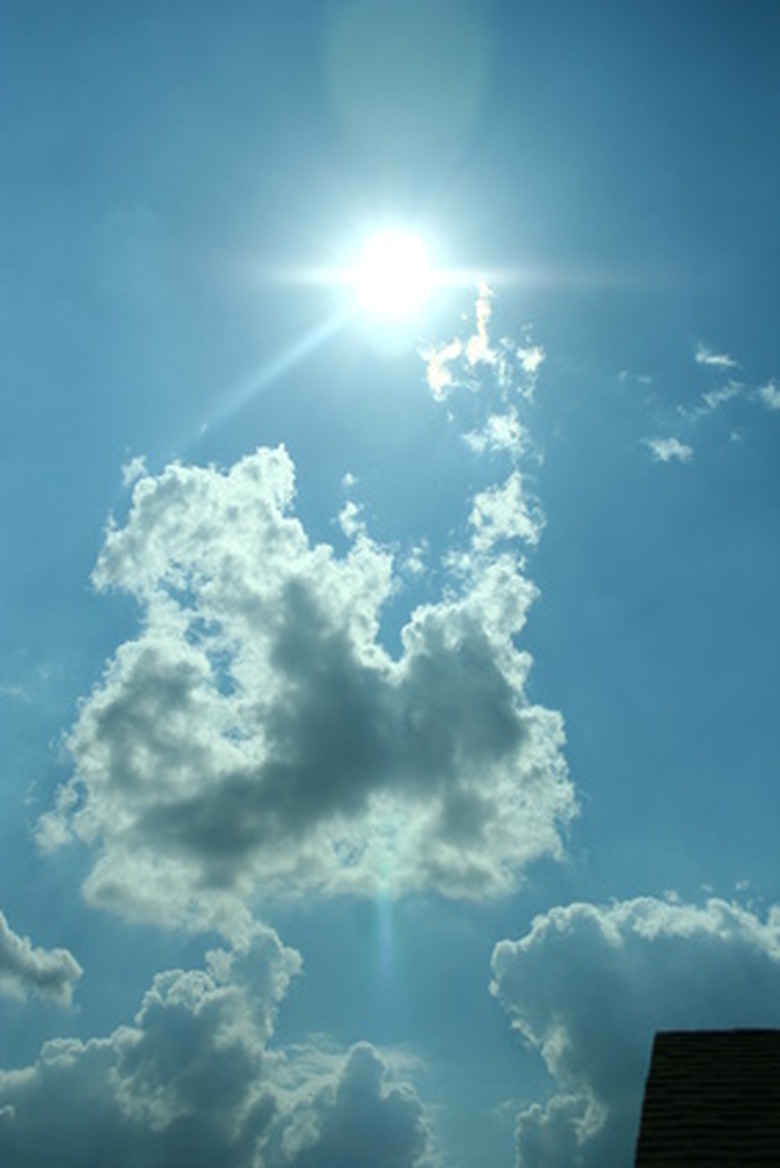Why Is UV Light Harmful?
Ultra-violet light (UV) is electromagnetic radiation invisible to human eyes. The sun is the natural source of UV radiation. The ozone layer absorbs the harmful ultraviolet radiation and protects the earth's surface from exposure. According to EPA, the ozone layer is depleting due to the presence of certain chemicals, such as chlorofluorocarbons (CFCs), which means that higher levels of UV radiation will reach the Earth's surface. Other sources include halogen lights, fluorescent and incandescent sources, and some kinds of lasers. Overexposure to UV radiation may cause skin cancer, damage of the eye and the suppression of immune system.
Effect on Skin
Effect on Skin
UV-B (a section of the UV spectrum) results in skin burns, erythma (reddening of the skin) and darkening of the skin, according to the Canadian Centre for Occupational Health & Safety. UV-A (another section of the UV spectrum) causes darkening of the skin. Prolonged exposure to the sun causes the premature aging of the skin.
Skin Cancer
Skin Cancer
Ninety percent of the skin carcinomas are attributed to UV-B exposure, according to NASA. Overexposure to UV rays from the Sun may result in three types of skin cancer: basal cell carcinoma, squamous cell carcinoma and malignant melanoma. Malignant melanoma is the most dangerous form of skin cancer. This can prove to be fatal if not treated in early stages. Basal cell carcinomas develop from continuous exposure of face, neck or hands to the sun. This rarely causes death and it does not spread to other parts of the body.
Effect on Eye
Effect on Eye
The eyes are very sensitive to UV radiation. This is due to the fact that cornea absorbs high doses of UV light. This may cause a temporary clouding of the cornea–a condition known as snow-blindness. Chronic effects of exposure to UV radiation include corneal damage, cataracts and macular degeneration. These conditions may ultimately lead to blindness. Melanoma (form of skin cancer) can also develop in the human eye.
Suppression of Immune System
Suppression of Immune System
Overexposure to ultraviolet radiation may weaken the immune system. UV radiation weakens the immune system in the skin and the rest of the human body. This causes a state of immunosuppression, which does not suppress tumor.
Effect on Marine Life
Effect on Marine Life
UV-B light may affect marine plankton, which resides in the top 2 meters of ocean water, according to NASA. Harmful UV rays cause 6 percent to 12 percent reduction in the growth rate of phytoplankton. UV exposure also reduces the reproduction rate.
Cite This Article
MLA
Sen, Debashree. "Why Is UV Light Harmful?" sciencing.com, https://www.sciencing.com/about-6453516-uv-light-harmful-/. 9 January 2018.
APA
Sen, Debashree. (2018, January 9). Why Is UV Light Harmful?. sciencing.com. Retrieved from https://www.sciencing.com/about-6453516-uv-light-harmful-/
Chicago
Sen, Debashree. Why Is UV Light Harmful? last modified March 24, 2022. https://www.sciencing.com/about-6453516-uv-light-harmful-/
